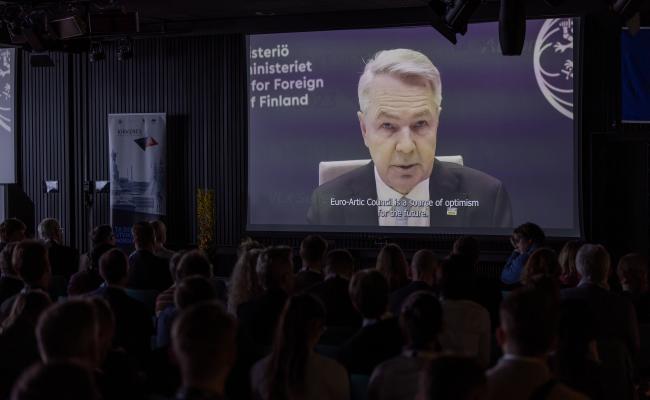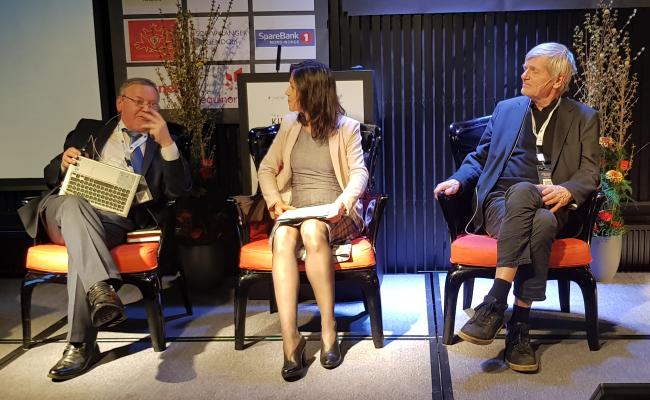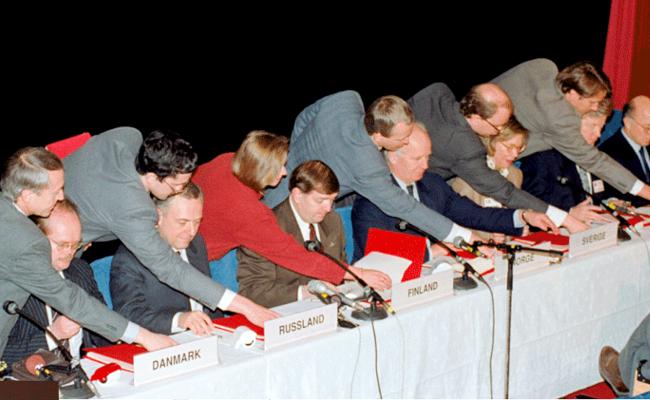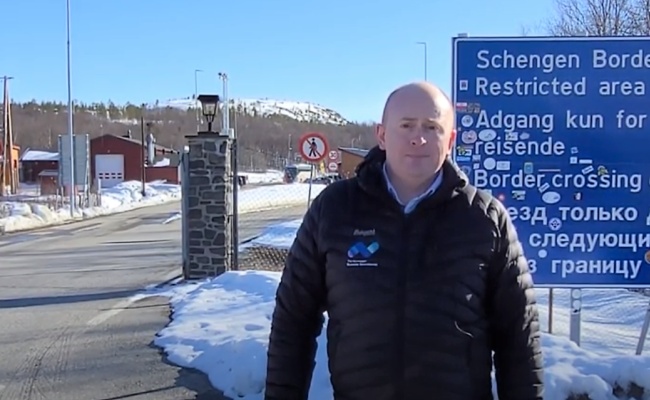Russia Out of the Barents Euro-Arctic Council: “Cooperation With the Sámi on the Russian Side Is Severely Affected by Russia’s War”
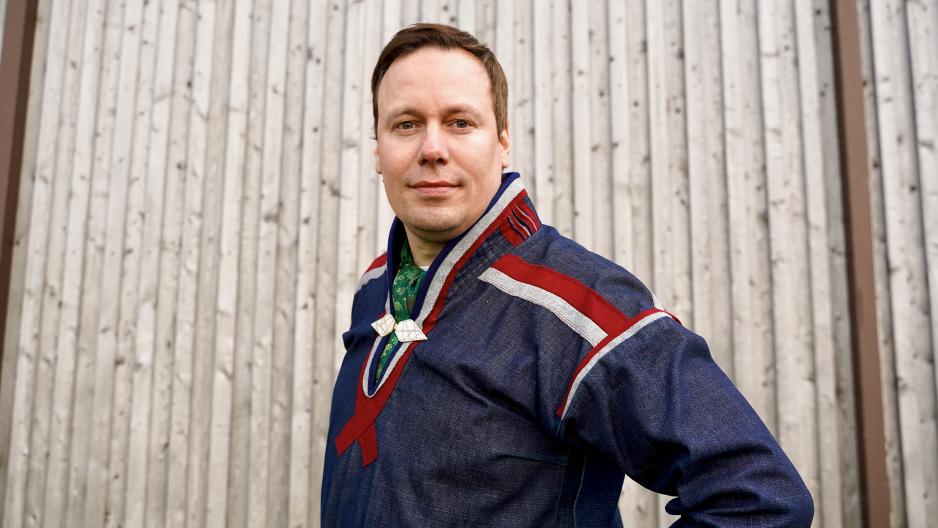
“We Sámi are one people, and it is grave that part of our people is isolated,” says Eirik Larsen about the Sámi on the Russian side of Sápmi. Larsen is a member of the Working Group of Indigenous Peoples in the Barents region from the Norwegian side of Sápmi, as well as a representative in the Sámi Parliament in Norway for the Norwegian Saami Association (NSR). (Photo: NSR/ Piera Heaika Muotka)
The Barents cooperation with the Sámi and other indigenous peoples in Russia has lain fallow since March 2022 – and has now formally ended with Moscow's withdrawal from the Barents Council. “The lack of interaction with the Sámi on the Russian side worries us, says Eirik Larsen, a representative in the Sámi Parliament in Norway.
Last week, Russia announced its exit from the Barents Euro-Arctic Council. This means that regional units and indigenous peoples on the Russian side – the Sami, the Nenets, and the Veps – have also been withdrawn from the Barents cooperation.
The Working Group of Indigenous Peoples (WGIP) in the Barents region has thus lost important participants – who, in practice, have not been able to participate in the cooperation since Russia's full-scale invasion of Ukraine.
“Overall, it is Russia that has chosen to withdraw from cooperation, and the consequences of this must be assessed by the other member states. In those assessments, it is natural to include the WGIP or the Sámi Parliaments,” writes Eirik Larsen, a member of the WGIP and representative in the Sámi Parliament in Norway (NSR), in an email to High North News.
“Regardless of Russia's decision to withdraw, we have, in any case, been prepared to work without the Russian side for the next time. In that sense, the country's withdrawal does not force any immediate changes in our activities,” Larsen points out.
The Barents Euro-Arctic Council (BEAC) members – Norway, Finland, Sweden, Denmark, Iceland, and the EU – will reportedly clarify the way forward at a ministerial meeting in Joensuu, Finland, on 24 October.
WGIP has an advisory role both to the foreign ministers in the BEAC and regional leaders in the Barents Regional Council.
Critical position
After activities with Russia in the Barents cooperation were suspended in March 2022, the aforementioned working group has been functioning with members from the Sámi parliaments in Finland, Sweden, and Norway.
“Today's cooperation under the Finnish BEAC chairship within the ‘Friends of the Presidency’ format, without Russia, has in itself worked well,” writes Larsen and continues:
“But the lack of interaction with Sámi on the Russian side worries us. We Sámi are one people, and it is grave that a part of our people is isolated. Most of all, it is critical for the Sámi and other indigenous peoples in Russia, who have found themselves in this situation through no fault of their own. Some Sámi men have been sent to the war and lost their lives there. Others have had to flee Russia to avoid the same fate.”
“Sámi organizations on the Russian side have also not been able to participate in the meetings of the Saami Council or of the Sámi Parliamentary Council. By and large, cooperation with the Sámi on the Russian side has been severely affected by Russia's war of aggression against Ukraine, which violates international law,” he emphasizes.
An important collaboration
Indigenous cooperation in the Barents region – not least vis-à-vis the Russian side – has been significant, according to the Sámi Parliament (Sámediggi) in Norway.
“The Barents cooperation has given the indigenous peoples and regions in the north a role in the cooperation with Russia. Under the auspices of the Barents Cooperation, many successful cooperation projects have been carried out, particularly in the fields of culture and business. The Barents cooperation has contributed to strengthening the Sámi sense of community with the Sámi on the Kola Peninsula,” the Sámi Parliament writes on its website.
The Working Group of Indigenous Peoples in the Barents region
– Interaction between the Barents region' indigenous peoples – the Sámi, the Nenets and the Veps – has been part of the Barents cooperation since its establishment 30 years ago.
– The Working Group of Indigenous Peoples (WGIP) was established on a permanent basis by the Barents Regional Council (BRC) in 1995.
– Its overall goal is to secure indigenous peoples’ rights and foundation for trade, society, culture and language through the implementation of the Action Plan of Indigenous Peoples of the Barents Euro-Arctic Council (BEAC).
– Unlike the other working groups in the Barents cooperation, the WGIP also has an advisory role vis-à-vis the BEAC and the BRC – the formats for the respective intergovernmental and regional cooperation.
– The Chair of the WGIP attends ministerial meetings. The working group also has a representative in the BRC and in the Regional Committee. In addition, representatives of WGIP are involved in other relevant working groups such as on the environment, youth issues, culture and tourism.
– The representatives from the Norwegian, Finnish and Swedish sides are appointed by the Sámi Parliamentary Council for four years. On the Russian side, the representatives of the Sámi, Nenets and Veps have been elected for three years at the suggestion of their own organizations.
– In Murmansk, the Barents Indigenous Peoples Office was established in 2003. Its aim has been to develop relations and stimulate participation in the Barents cooperation from the Murmansk region, as well as from Karelian and Nenets indigenous institutions.
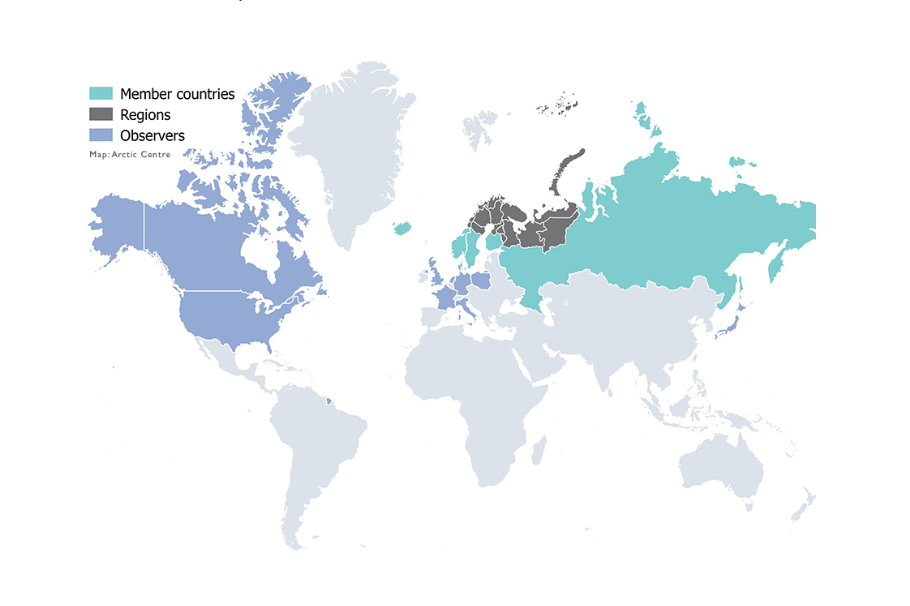
This map shows the Barents Cooperation's current and former member states, regional units, and observer states. Now Russia as a state, the Russian regional units of Arkhangelsk, Karelia, Komi, Murmansk, and Nenets – as well as the Sámi, Nenets, and Veps on the Russian side – have been withdrawn from the cooperation. (Screenshot from the BEAC website)


